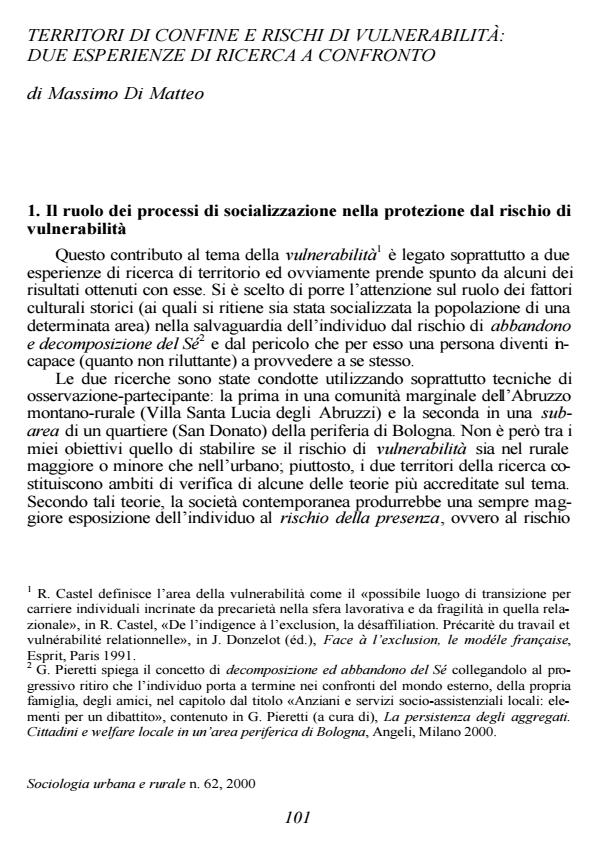Territori di confine e rischi di vulnerabilità: due esperienze di ricerca a confronto
Titolo Rivista SOCIOLOGIA URBANA E RURALE
Autori/Curatori Massimo Di Matteo
Anno di pubblicazione 1 Fascicolo 2000/62
Lingua Italiano Numero pagine 16 P. Dimensione file 48 KB
DOI
Il DOI è il codice a barre della proprietà intellettuale: per saperne di più
clicca qui
Qui sotto puoi vedere in anteprima la prima pagina di questo articolo.
Se questo articolo ti interessa, lo puoi acquistare (e scaricare in formato pdf) seguendo le facili indicazioni per acquistare il download credit. Acquista Download Credits per scaricare questo Articolo in formato PDF

FrancoAngeli è membro della Publishers International Linking Association, Inc (PILA)associazione indipendente e non profit per facilitare (attraverso i servizi tecnologici implementati da CrossRef.org) l’accesso degli studiosi ai contenuti digitali nelle pubblicazioni professionali e scientifiche
My contribution to the theme of vulnerability is mostly based on the results of two field studies. Attention is focused on the role of "close links" in preventing the risk of abandonment and decomposition of the self, that is, the danger of arriving at an inability (or reluctance) of the individual to look after himself. I was faced with this matter during two different community studies: firstly in a marginal rural community in Abruzzo (Villa Santa Lucia degli Abruzzi) and secondly in a sub-area of a district in the outskirts of Bologna (San Donato). We are obviously dealing with two very different situations; at first sight a comparison seems impossible, especially because the first case is inside a rural environment that is now fast disappearing, whereas the second is becoming increasingly common for those living not only in western countries but also in other parts of the world. My aim was not merely to compare an urban and a rural environment, but rather to investigate how the «close links» in the two different situations were not the same, even though they play a similar role; in the rural community in question the family is seen as a relational environment offering protection and shelter, while in the second case the community factors such as neighbors are more important
Massimo Di Matteo, Territori di confine e rischi di vulnerabilità: due esperienze di ricerca a confronto in "SOCIOLOGIA URBANA E RURALE" 62/2000, pp , DOI: